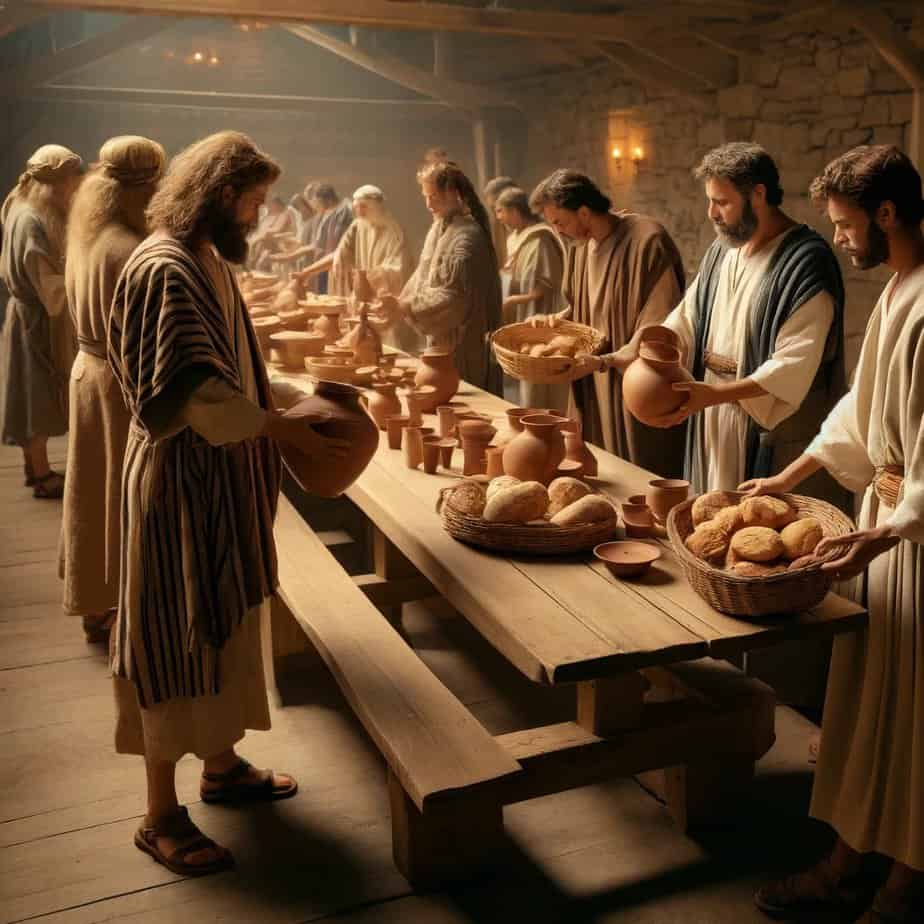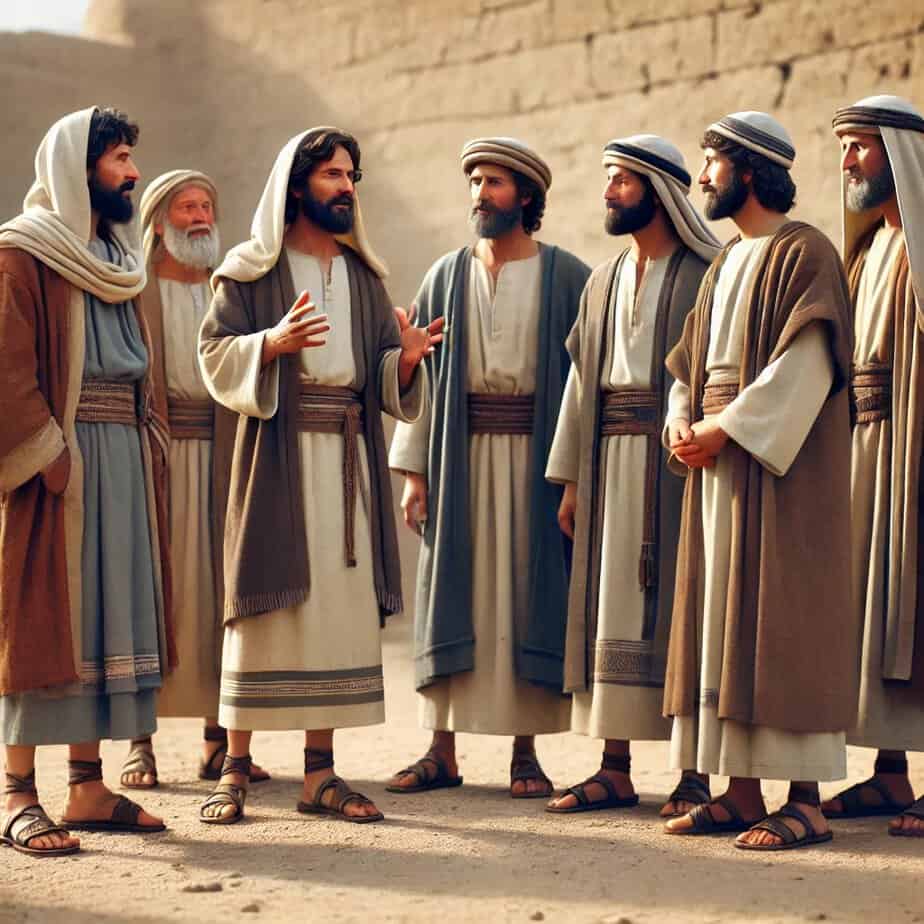MaMany churches today have deacons who serve faithfully, often working behind the scenes to meet the practical needs of their congregations. But what exactly is a deacon? The word “deacon” comes from the Greek word diakonos, which means “servant” or “minister.” A deacon is someone appointed to serve the church in practical ways, enabling church leaders to focus on prayer and teaching the Word of God.
But have you ever wondered where the idea of deacons began? The origin of this vital role in church leadership can be traced back to the early church in the Book of Acts, where the first seven deacons in the Bible were appointed. Their story provides a fascinating glimpse into how the early church handled growth, conflict, and ministry needs.
Let’s explore how these seven men were chosen, the challenges they addressed, and what we know about their lives and ministries.
The Early Church and the Need for Deacons
The early church grew rapidly after Pentecost when the Holy Spirit empowered the apostles to preach the Gospel. In Acts 2, we read that about 3,000 people were added to the church in a single day! Soon, this growing community faced practical challenges, particularly in caring for the needs of its members.
One of the primary challenges was the daily distribution of food to widows and other vulnerable members of the church. Acts 6:1 explains that a division arose between two groups: the Hebraic Jews (native Hebrews) and the Hellenistic Jews (Greek-speaking Jews). The Hellenistic Jews complained that their widows were being overlooked in the food distribution. This cultural divide threatened the unity of the church, and something had to be done.
The Solution: Appointing the Seven Deacons
The twelve apostles recognized that while the issue was important, their primary calling was to prayer and the ministry of the Word. To address the problem, they called a meeting of the church and proposed a solution:
“Brothers and sisters, choose seven men from among you who are known to be full of the Spirit and wisdom. We will turn this responsibility over to them and will give our attention to prayer and the ministry of the word.” (Acts 6:3-4, NIV)
The congregation agreed, and the seven deacons in the Bible were chosen. These men were tasked with ensuring that the daily distribution of food was handled fairly and efficiently, preserving both the unity and testimony of the church.

Who Were the Seven Deacons in the Bible?
Acts 6:5 lists the names of the seven deacons: Stephen, Philip, Prochorus, Nicanor, Timon, Parmenas, and Nicolas. Here’s what we know—or don’t know—about each of them:
1. Stephen
Stephen is the most prominent of the seven. Described as “a man full of faith and of the Holy Spirit” (Acts 6:5), he was also known for performing great wonders and signs among the people. Stephen’s bold preaching led to opposition from the synagogue of the Freedmen, who falsely accused him of blasphemy. His powerful defense of the Gospel in Acts 7 culminated in his martyrdom, making him the first Christian martyr.
2. Philip
Philip, often called Philip the Evangelist, played a significant role in the spread of the Gospel. After persecution scattered the church, he preached in Samaria, leading many to faith in Christ. He is also known for sharing the Gospel with the Ethiopian eunuch in Acts 8. Later, we find him in Caesarea, where he is described as having four daughters who prophesied (Acts 21:8-9).
3. Prochorus
Prochorus is mentioned only in the list of the seven deacons. Tradition suggests he later became a bishop in Nicomedia and was a companion of the Apostle John. Some accounts even associate him with assisting John in writing the Book of Revelation, though this is not confirmed in Scripture.
4. Nicanor
Little is known about Nicanor beyond his name in Acts 6:5. There is no additional biblical or historical information about his ministry or life.
5. Timon
Like Nicanor, Timon is mentioned only in the list of the seven deacons. Some traditions suggest he became a missionary and was martyred for his faith, but these accounts are not detailed in Scripture.
6. Parmenas
Parmenas is another deacon about whom Scripture is silent beyond his inclusion in Acts 6:5. Some traditions claim he was martyred in Philippi, but again, these details come from church history rather than the Bible.
7. Nicolas
Nicolas is identified as a proselyte of Antioch, meaning he was a Gentile who converted to Judaism before becoming a Christian. Some early church fathers associated him with heretical teachings, but these claims are debated and not clearly supported by Scripture.

Lessons from the Seven Deacons in the Bible
1. Godly Character Matters
The apostles emphasized that the deacons should be men of “good reputation, full of the Spirit and wisdom” (Acts 6:3). This shows that even practical ministry requires spiritual maturity and integrity.
2. Unity Is Worth Protecting
The appointment of the seven deacons helped resolve a conflict that could have divided the early church. By addressing the issue promptly and wisely, the apostles preserved the church’s unity and witness.
3. Every Role Is Significant
Though the seven were appointed to handle practical matters, their work supported the apostles’ ministry of preaching and prayer. This balance of roles enabled the church to grow, as Acts 6:7 notes: “The word of God spread. The number of disciples in Jerusalem increased rapidly, and a large number of priests became obedient to the faith.”
The Legacy of the Seven Deacons
The role of deacons has continued to evolve throughout church history, but the example of the seven deacons in the Bible remains foundational. Their ministry reminds us that God values both the spiritual and practical aspects of church life. Whether through serving meals, preaching, or caring for the marginalized, deacons play an essential part in building up the body of Christ.

Conclusion
The story of the seven deacons in the Bible is more than a historical account; it’s a testimony to God’s wisdom in meeting the needs of His people. By appointing these men, the early church modeled how to handle growth, cultural differences, and ministry challenges with grace and wisdom.
As we reflect on their legacy, let’s remember the importance of serving with integrity, striving for unity, and using our gifts to glorify Christ Jesus. Whether you’re called to a leadership role or a supportive ministry, your service matters in God’s kingdom.
Who inspires you most among the seven deacons? Share your thoughts in the comments below, and let’s continue learning from their example!





Leave a Reply